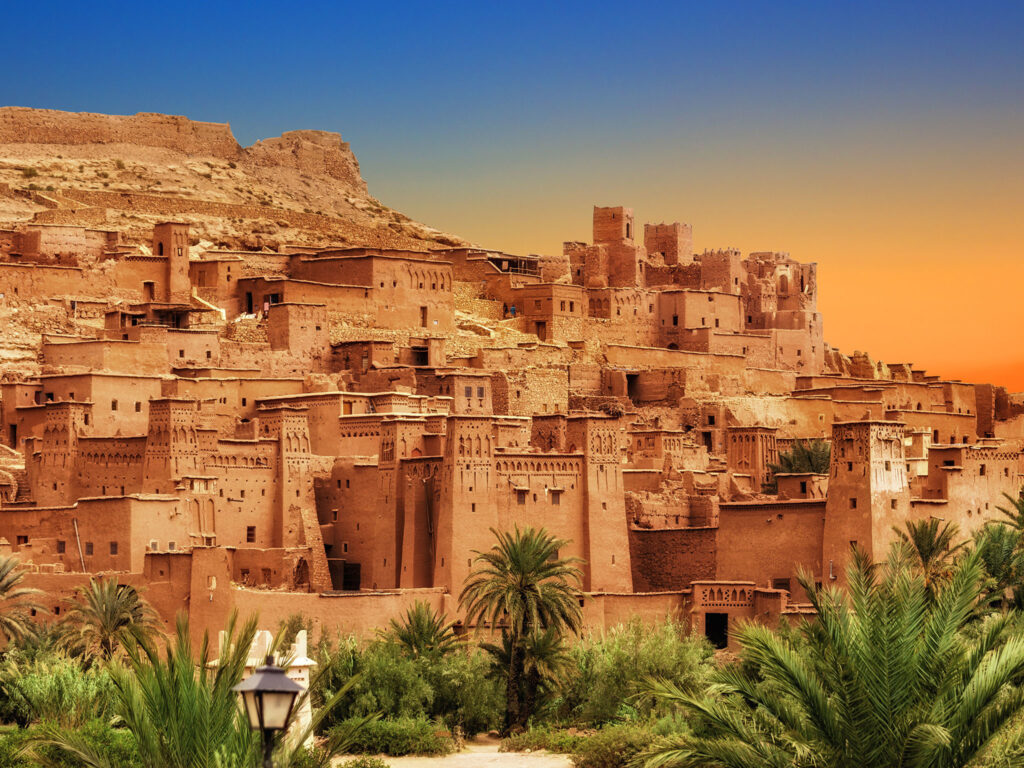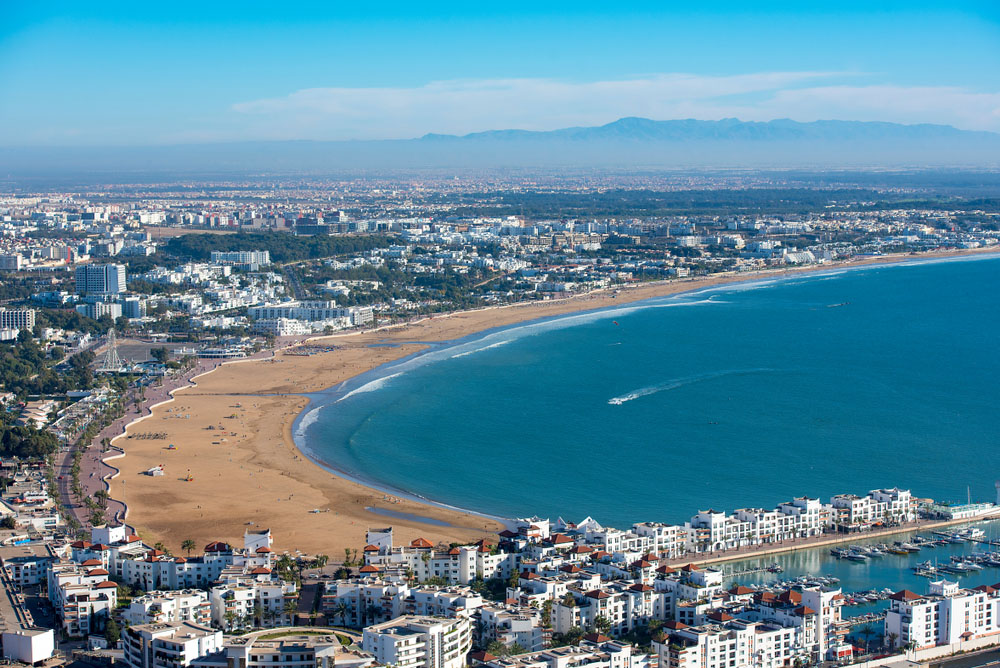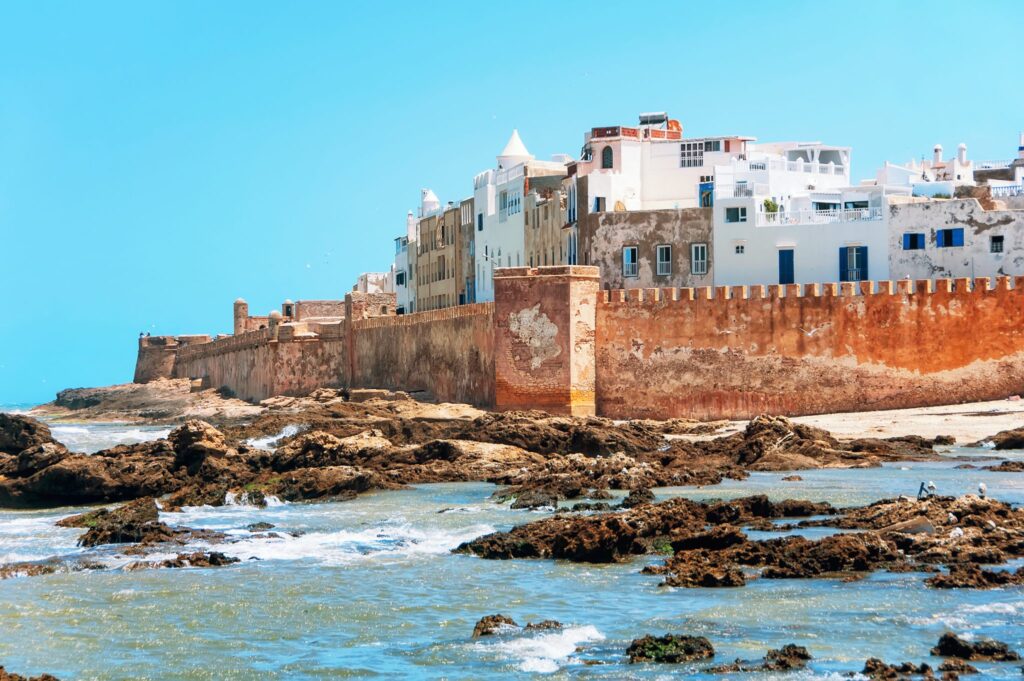Edit Content
Edit Content
Edit Content
Edit Content
Edit Content
Edit Content
We have a team of professionals to help you with all your business needs. So, that you can focus on business expansion in Morocco.
Morocco is a region in middle east and north Africa with a population of 36,029,138. As per 2020 reports, the country ranks 24th in paying taxes, 60th in enforcing contracts and 73rd in resolving insolvency. Morocco is a significant market opportunity for foreign companies and investors for many reasons. Morocco’s strategic trading location, large consumer class, potent economic growth, more than USD 100 billion annual gross domestic product (GDP) and successful implementation of financial restructuring programs make this North African nation very attractive to investors.
To facilitate foreign investment, the Moroccan government has created a number of Regional Investment Centers to minimize and accelerate administrative procedures. In 2014 and in 2015, Morocco has come up with some reforms and strategies to attract more investors. Few advantages of doing business in Morocco are-
Morocco is strategically located at the crossroads of Europe, Africa, and the Middle East. Its proximity to major markets provides access to over one billion consumers in Europe, Africa, and the Arab world. This advantageous geographic location makes Morocco an attractive base for trade and investment.
Morocco has implemented economic reforms and established a stable and investor-friendly business environment. The government has implemented measures to streamline bureaucracy, improve transparency, protect intellectual property rights, and facilitate foreign investment. The country’s political stability and commitment to economic liberalization provide a solid foundation for business operations.
Morocco has a relatively young and skilled workforce. The labor market offers a diverse pool of talent across various sectors, including manufacturing, technology, and services. The labor costs in Morocco are generally lower compared to many European countries, making it cost-effective for businesses to operate and employ skilled workers.
The Moroccan government provides various incentives and support programs to attract foreign investment. These include tax incentives, grants, and subsidies, especially for investments in priority sectors, export-oriented activities, and regions with high potential for development. Additionally, free trade zones and industrial parks offer additional benefits for companies looking to establish operations in Morocco.
Foreign companies starting a business in Morocco are eligible for financial assistance under the same conditions as Moroccan companies. This assistance is offered as an incentive to encourage regional development and to avoid over industrialization in certain areas. It is therefore essential for companies to choose the right location.
There are no restrictions on foreign ownership, with the sole exception that foreigners cannot own agricultural land.
The normal rate is 30%, with a 37% rate applying to leasing companies and credit institutions. It is 15% for companies with an annual turnover not exceeding MAD 3 million. Foreign contractors carrying out engineering, construction or assembly projects relating to industrial or technical installations may opt to be taxed at a rate of 8% calculated on the total contract price net of VAT and similar taxes. Companies are always subjected to a legal minimum tax of 1500 MAD or 0.5% of the annual turnover. It is based on turnover, income from interest, subsidies, bonuses or donations received. The CM is not payable by companies during their first thirty-six months of operation.
The standard VAT rate is 20 percent and applies to all suppliers of goods and services, except those taxed at other rates or those who are exempt. A reduced rate of 10 percent applies to specific items such as banking and credit services, leasing, gas, water and electricity. Two types of exemptions from VAT are provided. The first is an exemption with credit, equivalent to the zero-tax concept, which applies to exports, agricultural material and equipment and fishing equipment. The second is an exemption without credit, i.e., the seller receives no credit for input VAT paid. This exemption applies to basic foodstuffs, newspapers and international transport services.
Most products imported are subject to import duties, the rates of which vary between 2.5 percent and 10 percent for equipment, materials, spare parts and accessories.
Limited liability companies (SA) must have a minimum of five shareholders who can be either legal entities or individuals. Upon incorporation of the limited liability company, a quarter of the equity capital must be paid in advance if paid in cash contributions. If it is paid in contributions in kind, it must be fully paid upon incorporation. Both bearer and registered shares may be issued by the limited liability company. The minimum share value is 50 MDh.
The private limited company (SARL) should have minimum equity capital 10,000 MDh. It may be formed by two or more members who are only liable to the amount of their share of the equity capital in the company.
In a general partnership, the partners are jointly and severally liable, without limitation, for the debts of the partnership. Partners may be individuals or corporations; however, they do have to be registered as merchants. There is no restriction on participation by foreign individuals or corporations in general partnerships.
Foreigners may establish in Morocco sole proprietorships. In a sole proprietorship, the business is conducted under the responsibility of an individual personally liable for the debts of the business to the extent of all business and personal assets. The business must be registered with the Commerce Registry and with the tax authority.
Morocco is a region in the middle east and North Africa with a population of 37,840,044. The
country ranks 24th in paying taxes, 60th in enforcing contracts and 73rd in resolving insolvency.
Morocco is a significant market opportunity for foreign companies and investors for many
reasons. Morocco’s strategic trading location,
Author: Chandrawat & Partners
Topic: Doing Business in Morocco
Download our comprehensive guide on – Doing Business in Morocco
Get in touch with the right people to get the right help in setting up your business in Morocco.
Contact us at: [email protected]


The standard VAT rate is 20 percent and applies to all suppliers of goods and services, except those taxed at other rates or those who are exempt. A reduced rate of 10 percent applies to specific items such as banking and credit services, leasing, gas, water and electricity. Two types of exemptions from VAT are provided. The first is an exemption with credit, equivalent to the zero-tax concept, which applies to exports, agricultural material and equipment and fishing equipment. The second is an exemption without credit, i.e., the seller receives no credit for input VAT paid. This exemption applies to basic foodstuffs, newspapers and international transport services.
Tax Slab Rates :
0 – 48000 BWP – 0%
48,000 – 84,000 BWP – 5%
84,000 – 1,20,000 BWP – 12.5%
1,20,000 – 1,56,000 – 18.75%
1,56,000 BWP & above – 25%
Limited liability companies (SA) must have a minimum of five shareholders who can be either legal entities or individuals. Upon incorporation of the limited liability company, a quarter of the equity capital must be paid in advance if paid in cash contributions. If it is paid in contributions in kind, it must be fully paid upon incorporation. Both bearer and registered shares may be issued by the limited liability company. The minimum share value is 50 MDh.

The private limited company (SARL) should have minimum equity capital 10,000 MDh. It may be formed by two or more members who are only liable to the amount of their share of the equity capital in the company.
In a general partnership, the partners are jointly and severally liable, without limitation, for the debts of the partnership. Partners may be individuals or corporations; however, they do have to be registered as merchants. There is no restriction on participation by foreign individuals or corporations in general partnerships.
Foreigners may establish in Morocco sole proprietorships. In a sole proprietorship, the business is conducted under the responsibility of an individual personally liable for the debts of the business to the extent of all business and personal assets. The business must be registered with the Commerce Registry and with the tax authority.

Chandrawat & Partners is a prominent full-service firm dedicated to delivering top-tier professional services to clients both within the domestic and international spheres.
Copyright © Chandrawat & Partners. All Rights Reserved.
Copyright © Chandrawat & Partners. All Rights Reserved.
Chandrawat & Partners stands as a dynamic and rapidly expanding full-service firm, specializing in the delivery of exceptional professional and corporate services to a diverse clientele, both foreign and local. We proudly represent companies and individuals across a wide spectrum of sectors through distinct entities established in various countries worldwide.
Chandrawat & Partners stands as a dynamic and rapidly expanding full-service firm, specializing in the delivery of exceptional professional and corporate services to a diverse clientele, both foreign and local. We proudly represent companies and individuals across a wide spectrum of sectors through distinct entities established in various countries worldwide.
ASIA
AFRICA
EUROPE
NORTH AMERICA
SOUTH AMERICA
OCEANIA